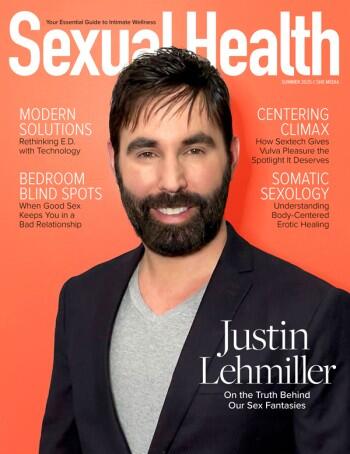In a market where convenience often trumps connection, you might wonder if there’s still space for human-led product training. As someone who has spent years delivering such training sessions, I can assure you that there absolutely is. In fact, they are more vital than ever as we continue to see a shift toward a future featuring fewer human interactions and more digital learning.
To be clear: Digital learning absolutely has its place. However, when it comes to pleasure products, digital training often falls short in one key area: Human-led sessions create space for people to speak openly about their personal needs.
Training doesn’t have to focus heavily on sales, particularly if you want people to learn something new and leave feeling like they enjoyed themselves.
Pleasure is deeply individual, and a one-size-fits-all approach doesn’t always work. Many people are navigating unique experiences, challenges or gaps in education. That’s where human connection makes a difference. Bespoke, person-centered training can meet people where they are, building their confidence not just in the product, but in themselves.
When I first started delivering training, my goal wasn’t just to teach people about the mechanics of our sex toys and how they work. It was to share the story of our brand and help change the way we talk about pleasure. I quickly learned that these products challenge the norms of what pleasure can look like for everybody. That means education is essential — not just for sales, but for personal empowerment.
One of the biggest myths in our industry is that sex toys “sell themselves.” A new toy or innovative feature may indeed catch the customer’s attention, but if nobody in the store understands how the product can help enhance a person’s sex life or cater to their specific needs, it stays on the shelf. That’s where human-led training comes in.
When staff or customers see our more unique products, they often don’t know what they are used for or how to operate them. I’m sure the same applies to many other products out there. That’s why we make a point of sharing key details about each toy that might not seem obvious at first glance, but may be exactly what the customer is seeking.
We always notice a significant increase in sales when providing regular, robust staff training. When staff members really understand our products and can more effectively communicate to customers about features and benefits, they’re not just selling a toy; they’re sparking curiosity and confidence in the people buying it.
Pleasure is personal. Sales should be too.
As a full-time wheelchair user, I also know from personal experience that training must be accessible. Not everyone can attend in-person events, whether due to financial constraints, distance or disability. That’s why it’s essential to ensure that online trainings still allow us to connect with people worldwide and from all walks of life. In our online sessions, the core connection remains: We chat, laugh and learn. Sometimes we even become friends. That human touch doesn’t disappear just because we’re behind a screen.
Of course, it can be a challenge to keep people engaged in an era of screen fatigue. One effective approach we’ve found is customizing each session to address areas in which stores or customers wish to improve. Whether they need assistance with customer care and support, product knowledge, unconventional product uses or experimentation, we discuss their needs before the session. Each customer then receives a bespoke training deck and a two-hour session focusing on their key areas, along with some engaging role-play — because who doesn’t love roleplay?
Another key element of successful training is ensuring that there is a component of education involved. Training doesn’t have to focus heavily on sales, particularly if you want people to learn something new and leave feeling like they enjoyed themselves. If something you teach them resonates on a more personal level, they are ultimately more likely to sell the products.
Pro tip: Whenever possible, provide products to staff. You’re more likely to see results, since the best way to learn about a product is to try it out for yourself.
At Hot Octopuss, we’ve seen firsthand how well these strategies work. The feedback on this new style of training has been overwhelmingly positive. Our customers are booking more sessions and even inviting other staff members who would not usually be present, so that everyone can walk away with a stronger understanding of both our products and our values. Staff are not only more confident about selling the products, but also more eager, because they understand the purpose behind the product and see the value in changing someone’s experience of intimacy.
Ultimately, what we do extends beyond product education. We’re giving people the tools to discuss pleasure confidently, inclusively and with a proper understanding of the product and its ability to support individuals on their pleasure journey. That’s something you can’t replicate with a YouTube tutorial.
Kelly Gordon is the chief marketing officer at Hot Octopuss.








